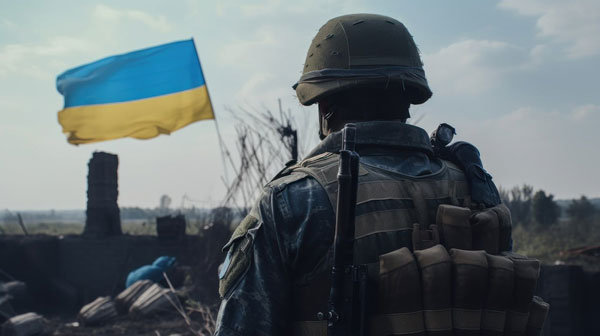North Korean troops provoke global concerns as they join Russia's war effort in Ukraine

[A soldier gazes at the destruction of Ukrainian land. Photo Credit to Pixabay]
North Korea’s deployment of troops to support Russia in the Ukraine war has alarmed the international community, marking an unprecedented level of military collaboration between the two isolated nations.
The alliance reflects a strategic partnership between North Korean leader Kim Jong Un and Russian President Vladimir Putin, fulfilling their promises of mutual support against common adversaries.
According to South Korean intelligence, about 3,000 North Korean soldiers were sent to Russia on October 8, transported by Russian vessels and outfitted with Russian-issued uniforms and identification.
Reports from Ukraine indicate that these North Korean troops, trained in Russia’s eastern regions, have started arriving in the Kursk area, a southwestern region near Ukraine’s border.
Intelligence sources describe them as elite forces who were transported from Vladivostok to western combat zones aboard Russian military aircraft.
While not yet engaged in direct combat, their roles in Russia remain uncertain, though South Korea’s National Intelligence Service believes they may fulfill various tasks, including logistics, specialized support, and potentially combat.
For North Korea, sending troops presents multiple strategic advantages.
The conflict offers its forces exposure to modern warfare techniques unavailable domestically.
Analysts suggest this may allow North Korea to test and evaluate its soldiers’ performance using advanced Russian weaponry.
Furthermore, this deployment could be part of a larger arrangement to secure Russian military technology.
Military experts speculate that North Korea hopes to gain expertise in intercontinental ballistic missiles, nuclear-powered submarines, and other high-tech weapons systems, which would bolster its defense capabilities against the U.S. and South Korea.
However, North Korea’s involvement comes with diplomatic risks.
By aligning so closely with Russia, Pyongyang could further isolate itself from Western nations and other global powers that condemn Russia’s actions in Ukraine.
Yet, North Korea’s leadership may see the potential military benefits and strengthened alliance with Russia as worth the diplomatic fallout, given the nation’s recent emphasis on militarization.
Both the U.S. and South Korea have expressed deep concern over the potential impacts of this deployment.
South Korea’s National Intelligence Service has dispatched a delegation to NATO to share intelligence on North Korean troop involvement.
U.S. Secretary of Defense Lloyd Austin warned that the collaboration between North Korea and Russia represents a “direct threat” to international stability, suggesting that North Korean troops operating with Russian forces could become “fair game” in active conflict.
The U.S. and South Korean Joint Chiefs of Staff have also held recent discussions, addressing the destabilizing effect this alliance could have on the Korean Peninsula.
For Pyongyang, this marks its boldest foreign military intervention in decades.
While North Korean forces participated in the Vietnam War and Egypt’s Yom Kippur War in the 1970s, the scale of this deployment is unprecedented in recent history, signaling the regime’s bold move in supporting Russia.
Analysts warn that this partnership risks further escalating the Ukraine conflict and entangling the region in broader instability.
The response from the international community, particularly any military action, could significantly shape the geopolitical landscape in the coming months as the North Korean-Russian alliance further complicates the dynamics of the Ukraine conflict.

- Joseph Shin / Grade 11 Session 7
- Valley Christian High School

![THE HERALD STUDENT REPORTERS [US]](/assets/images/logo_student_us.png)
![THE HERALD STUDENT REPORTERS [Canada]](/assets/images/logo_student_ca.png)
